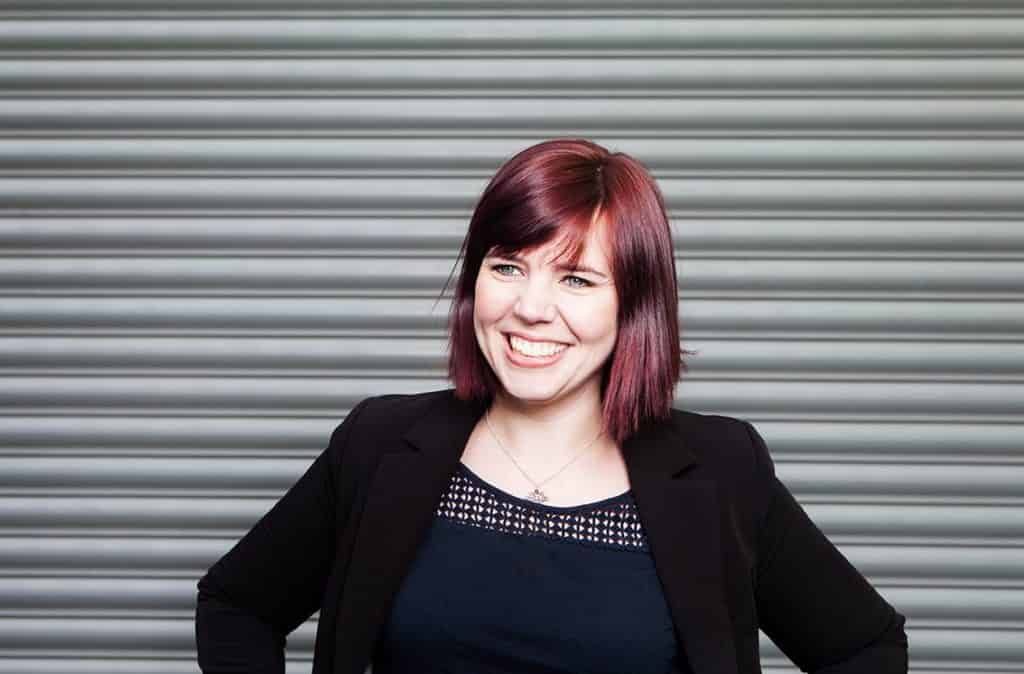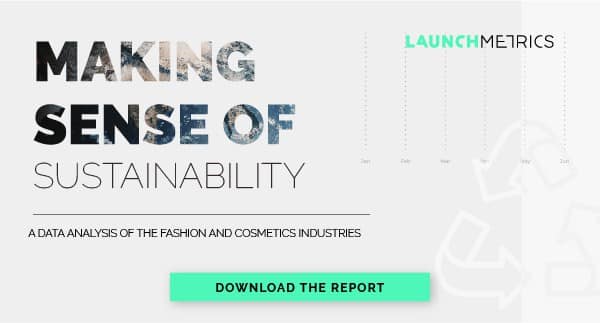In our recent report, Making Sense of Sustainability: A Data Analysis of The Fashion and Cosmetics Industries, we analyzed which brands came out on top when it came to driving the conversation around sustainability (in terms of Media Impact Value™). With increased customer concern, as well as the known waste that occurs in both the fashion and cosmetics sectors, sustainability is becoming more and more of a focus, as brands push to make the move towards zero-waste. In part of our report, we spoke with Brianne West, CEO and Founder of the world’s first zero-waste beauty brand, Ethique. The brand came to West as a breakthrough idea whilst she was in University and has already saved 4.3 million plastic bottles from being made and disposed of landfills. In 2016, West was also named a ‘Global Thinker’ by Foreign Policy magazine for ‘making beauty eco-friendly.’
Making Sense of Sustainability: An Interview with Brianne West
In terms of waste, what would you say is the number one problem when it comes to the beauty industry?
Packaging. Over 40% of the total plastic used comes from product packaging. A lot of products (particularly more high-end brands) have packages within packages, none of which tend to be recyclable as they are made out of mixed materials. The majority of cosmetic packaging is obviously plastic and yes, often recyclable, however, what most people don’t realize is that only 9% of plastic ever made, has ever been recycled, globally. That means out of 14 bottles, statistically, only one will be recycled. There is another slightly more horrifying statistic too – they now believe as much as 10% of all plastic ever made ends up in our oceans eventually, be it in its original form, or broken up into microplastics.
Global plastics manufacturers are gearing up to produce 30% more plastic in the next five years, and the beauty industry will be a significant consumer of this plastic.
What are the biggest challenges when it comes to building a truly sustainable collection?
There are hundreds of challenges. Any business owner or entrepreneur knows that starting and scaling a business is full of challenges. But certainly, creating an ethical one has been very hard. To start with, formulating solid products, such as face creams and self-tanner was tough, as I really had to start from scratch. As was developing compostable packaging, which is not only harder to source (it took some effort to convince our original printers) but 10-16 times more expensive than plastic.
Scaling an unusual product is tough too, but thankfully I have an amazing COO and incredibly supportive partners who have invested heavily in this alongside us to ensure we can keep up with the rapidly growing demand. Then there is ensuring customers understand the point of an unusual product, ensuring the financials stack up, dealing with international distributors and retailers… the list goes on!
One of the hardest bits is always considering what you could be doing better because even the most ethical business can improve. However, I am very pleased with our many certifications, including our palm oil-free one!
What inspired you to come up with the idea of Ethique – the world’s first zero-waste beauty brand?
It was while I was studying biology at the University of Canterbury that I used my science training to teach myself cosmetic chemistry and generally get a better understanding of how much waste actually comes from this industry. Between 75-90% of shampoo and conditioners are made from water and that really shocked me – it seemed like such a waste.
However, the initial idea actually came to me in the shower when I realized that, with so much water everywhere, there’s no need to add it to many of the products we use – the obvious ones were shampoo and conditioner. So, I set about researching and mixing ingredients in my kitchen to see if I could develop a solid beauty bar that delivered the same results but without the need for all the plastic packaging. Our products come in 100% compostable packaging and, incredibly, given my breakthrough idea that happened just seven years ago, Ethique became the world’s first zero-waste beauty brand.
What solutions are out there to help the beauty industry become more sustainable?
At a packaging level, there are manufacturers and printers already working with more sustainable material options. In terms of ingredient producers, there are a number of organizations committed to ethical and sustainable practices who are working to produce key ingredients that, for example, can aid the mass deforestation associated with palm oil – for example, we source our coconut oil from a women’s cooperative in Samoa.
We are seeing a rise in solutions-based thinking from many companies worldwide whether it be ensuring their ingredients and packaging tick the right boxes, down to their company ethos and approach to the environment and people. There are a lot of good brands actually making a difference and contributing to a shift, not just greenwashing.
We have to stop transferring responsibility for saving our environment onto consumers – businesses need to lead the way and become accountable for the entire lifecycle of their products. People are sick of feeling guilty for something they have no control over. Global plastics manufacturers are gearing up to produce 30% more plastic in the next five years, so brands need to step up and offer consumers a way to help save the environment – it’s that simple. Governments have proven they won’t take the lead, so businesses need to step up.
How do you think customers are responding to options for more sustainable beauty products?
You only have to look around to see the worldwide momentum behind banning single-use plastics, alongside the realization that recycling will not make our plastic obsession okay. We’re now seeing consumers challenging big brands and opting to support companies that care about people and the environment. I hope we continue to see a shift in the environmental and social impact of companies and consumers but also see a wider shift in the way that plastic and waste is handled.
Do you want to learn more about how data can help build the perfect zero-waste collection?
Take a look at our recent report: Making Sense of Sustainability, where you will discover which brands and influencers are leading the conversation around the topic, and how your brand can make positive steps.

